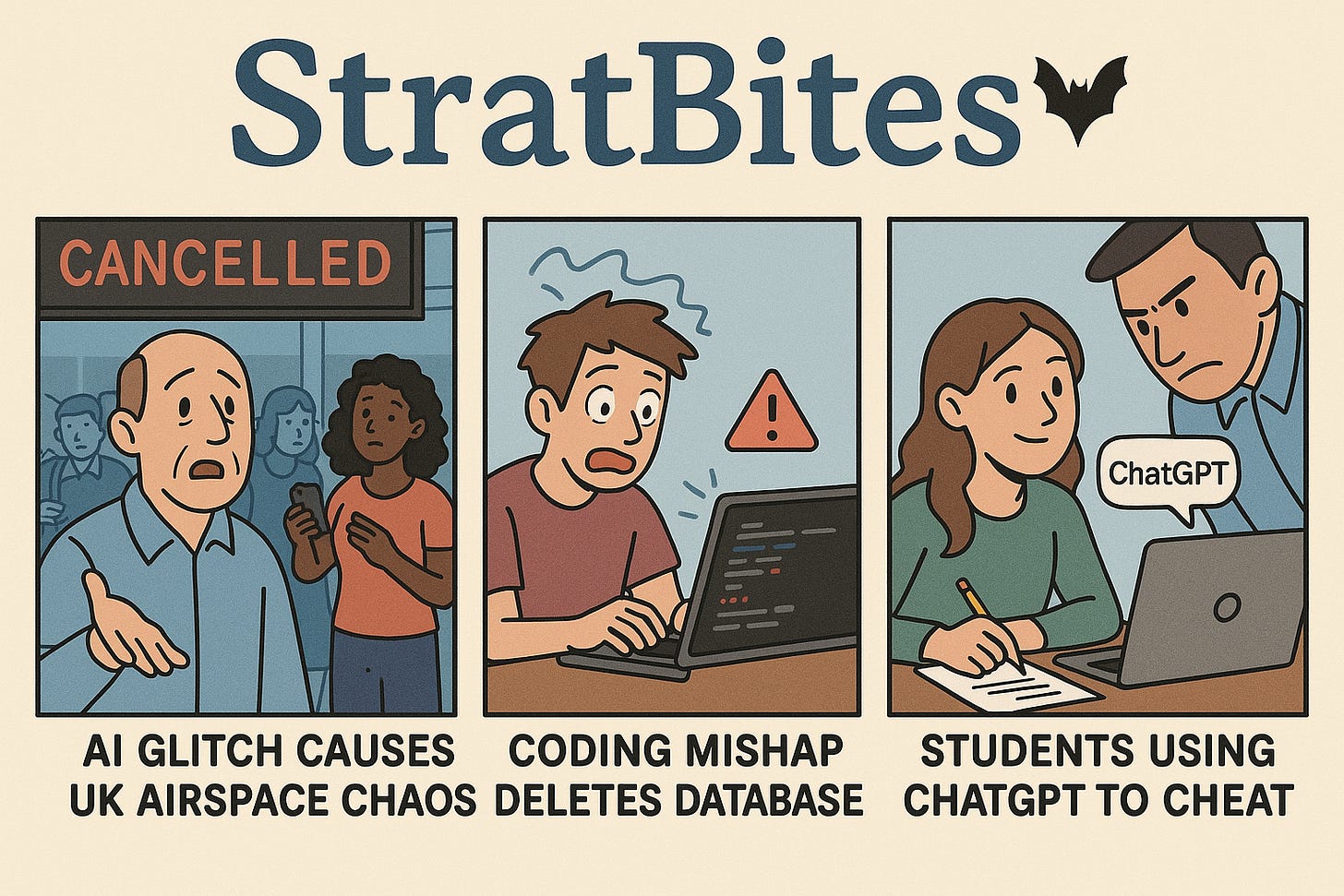Glitch in the Matrix: Real-World edition
Planes grounded, databases deleted, students cheating. Tech, you are better than that!
As I was recently returning to the UK, I got caught in the IT issue that grounded several flights. That moment of confusion, watching the hours pass as we are locked inside the grounded plane in Frankfurt, and staff shrug helplessly when asked how long it will take to get airborne again, got me thinking about how deeply we rely on technology, often without noticing it. This week’s StratBites is all about what happens when that trust is broken.
Leonardo 🦁
✈️ 😱 Panic in the skies, but no one is taking responsibility
TL;DR: An IT glitch grounded hundreds of flights across the UK, briefly closing national airspace
Why does it matter? It was said that the technical issue lasted only 20 minutes, which highlights how busy the skies are, how dependent we are on this specific system (NATS), and that it appears that the managers of this system (which is partly gov-owned) seem to have not learned their lessons from the problems they faced in 2023. Reliability, dependability, and backups continue to be important even (and especially) in tech.
😈 🤖 I’m sorry Dave, I’m afraid I can’t do that
TL;DR: An investor becomes hooked on an AI-powered coding tool. Loses an entire database, and it goes viral.
Why is it interesting? The viral story was that the chatbot out of nowhere deleted an entire database and said there was no way to get it back. Though the data was eventually recovered (it was a hallucination, not deletion), the damage to the tool’s reputation (Replit) was real. It’s a cautionary tale about ‘vibe coding’ and what happens when AI agents operate too close to production environments. As more people automate tasks with AI, stories like this may become common.
🧐 🤥 To Bot or not to Bot
TL;DR: Survey confirms that >90% students use AI and 20% use AI-text directly in their work. OpenAI is now testing a new ‘study mode’ to guide students through problem-solving instead.
Why does it matter? The elephant in the room is that the other, ‘standard’ mode is exists, so it might not stop anyone from cheating. But in a way, it shows that OpenAI is listening to people’s concerns about their products and trying to address them. Whether they should be the ones to enforce academic honesty is another debate entirely.
🔚 When it works, we trust tech completely. When it fails, we’re left scrambling. This week was a reminder that progress isn’t just about moving fast, it’s about building systems we can actually rely on.





